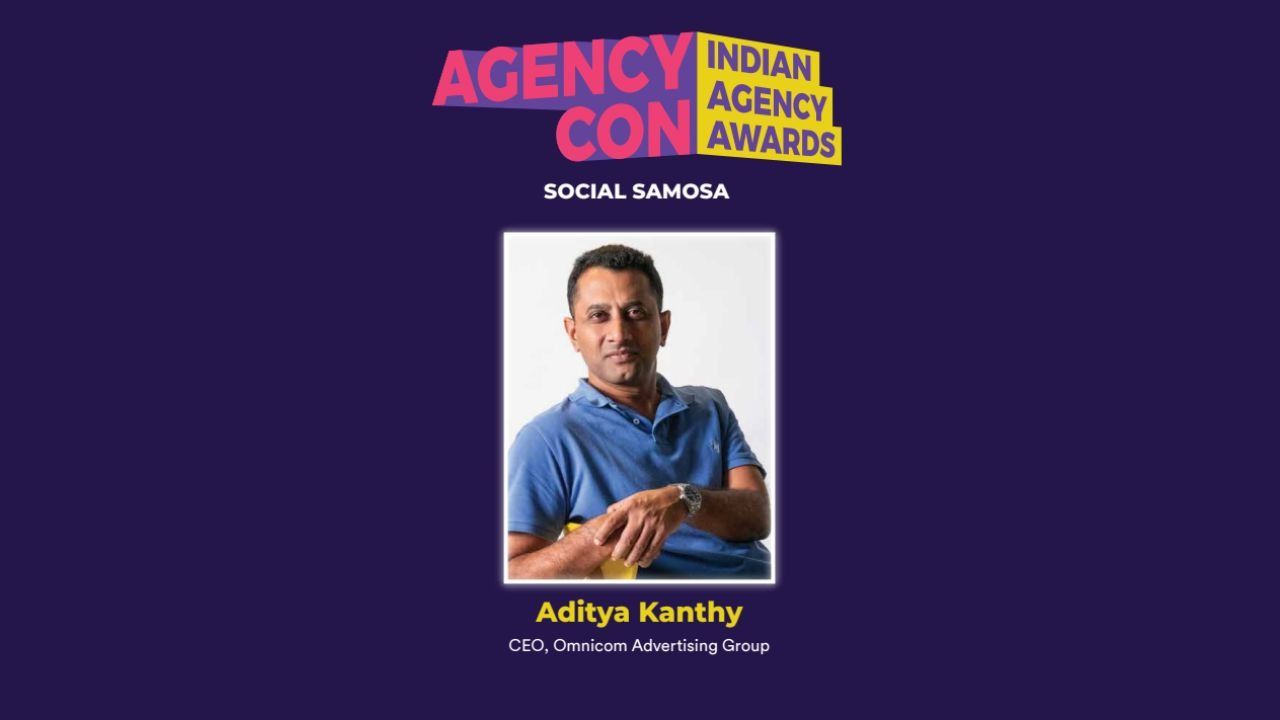Aditya Kanthy on why long-term thinking still matters in advertising

At a time when much of advertising is geared toward instant gratification, be it rapid ROI, viral reach, or quick creative turnarounds, Aditya Kanthy, CEO of Omnicom Advertising Group India, used his keynote at AgencyCon to explore what is being overlooked. In a session titled “The Long Game”, he made a case for patience, consistency, and reflection: qualities that, in his view, are undervalued in today’s discourse around marketing.
“There is so much focus and emphasis on speed and agility and the opportunities that technology presents us,” he said. “Without enough reflection on what this overemphasis on the short term is doing to our people, our business, and the brands we are responsible for.”
Framing his thoughts through four lenses: career, brand, creative work, and culture, Kanthy attempted to articulate why longevity and depth are not only relevant, but essential.
Careers and the value of staying
Kanthy opened with a personal story from early in his career, when he was about to leave his job at Mudra after just one year. “For a young person to take a position a year into their job that they had learned everything that they potentially could… was frankly ridiculous,” he said. A senior colleague helped him rethink his decision, prompting a more honest self-examination about why he was considering the switch, primarily driven by compensation.
That moment shifted how he viewed professional growth. “Until you feel like you’ve exhausted every avenue of growth in the company that you work with… the honesty of that conversation—whether it is about more money, about more work, about designation, or about your experiences—is the single most important conversation you can have,” he said.
He also cautioned against the industry’s tendency to normalise quick exits and rapid turnover, calling it a structural issue.
“The temptation to move—and companies’ temptation to not do the hard yards to try and find pathways for really good people—is a major problem that accumulates over time.”
The brand conversation has diminished
From careers, Kanthy moved to a recurring concern in advertising: the erosion of brand-centric thinking. “There’s very little conversation happening about the brand,” he said, adding that it's become “dangerous to talk about the brand” in an environment where the industry regularly declares advertising, brands, and agencies as being dead.
He challenged the current tendency to chase platform metrics and trends without anchoring those actions in fundamental brand thinking. “Real value in our business… comes from the accumulated impact that ultimately leads to brand building,” Kanthy asserted. According to Kanthy, if we forget that, the system will be at the mercy of tech companies and platforms telling us what it means to build a brand, with zero experience in having done that.
He also drew on research that ties brand distinctiveness to long-term financial performance. “There’s a direct correlation between distinctiveness of brand and performance at the S\&P,” he pointed out, referring to studies that show how companies with consistent branding tend to outperform others over long stretches.
According to him, brand work should not be reduced to a creative flourish; it is foundational. “If you don’t do the work that you need to do to be salient, relevant and noticed, those brands will hit a gap of growth,” he continues.
Work that builds over time
Kanthy then turned to the nature of creative work itself. While short-term campaigns are part of agency life, he argued that the more meaningful and memorable work is often built over long durations.
“Some of the most amazingly rich experiences are developed over time,” he said, not necessarily because of awards or public recognition, but because of what they reveal about the category and the people being reached.
He referenced the ‘Share the Load’ campaign for Ariel, created by BBDO India, as an example of sustained storytelling. “Josy and his team, over ten years now, have done proper mainstream advertising work… exploring it through the problem itself, from the woman’s perspective, the man’s role, older couples, and more.” He noted that this type of work is not only insightful but also shows how advertising can be used to shift culture slowly and thoughtfully.
Kanthy also mentioned Royal Enfield as a case that challenges the myth that brand building must happen through mass media. “It’s been built basically on digital,” he said, talking about how it is built with clarity around what the brand will do and will not on social media or otherwise.
He added, “Just because it’s not fashionable to do it in marketing corridors today… I think we’re missing a huge part of where valuation in our business is happening.”
The broader role of advertising
In the final section of his talk, Kanthy urged the audience to consider the cultural and environmental dimensions of their work. He said that there is a cynicism in marketing and in capitalism that we must be wary of.
However, he clarified that he wasn’t advocating for purpose-driven advertising detached from business objectives. “I am advocating for a deeper examination of what it means to sell and what it means for a company in today’s time to do the right things.”
Kanthy highlighted that advertisers, marketers, and agencies are not just intermediaries between products and consumers; they are participants in shaping the world. He encouraged agencies to consider the clients they work with, the communities they touch, and how their choices affect broader systems; especially in an era increasingly shaped by artificial intelligence.
He referenced the Internet revolution as a cautionary tale. “We goofed up… by being negligent and allowing that power to be concentrated in too few hands,” he said. “We should be careful not to let that happen this time.”
News